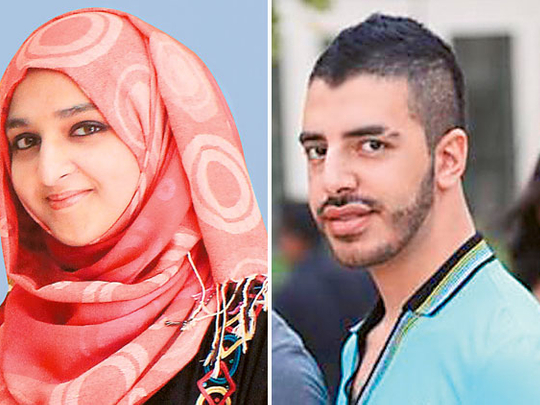
Dubai: Residents in the UAE are easing back into their normal daily work and life routines after a month of fasting during Ramadan and the subsequent Eid holidays. The return to normal sleep and food patterns are just some of the adjustments that must be made.
Quratulain Salim, 22, a senior student at Dubai Pharmacy College, said she had been doing her pharmacy training through the Holy Month.
“I used to be at the pharmacy from 10am-1pm and then after iftar from 8pm-11pm. In the afternoon on returning home I used to spend some time reciting Quran and then nap until 4pm-5pm. In the remaining hours until iftar, I spent my time in the kitchen with my mother.”
Quratulain said that when she had days off from the pharmacy, she would use her free time to attend Taraweeh prayers (special Ramadan night prayers). She added that another difference from her regular routine was that she tried to avoid watching movies or listening to music so that she could spend her time more gainfully.
“Instead I would recite the Quran or do Tasbeeh [form of invocation],” she recalled.
Now that Ramadan is over, Quratulain says she is trying to commit to the same self-control and spend more time in prayers and reciting the Quran. “This blessed month is like training so that we spend the rest of the year with the good habits we were observing along with the fast. I will definitely be busier now that the colleges will reopen,” she said.
Abbas Zehri, a mechanical engineer, prefers his non-Ramadan routine. “Fasting is healthy for the body and it gets us spiritually closer to God, but I cannot concentrate or do anything useful when I am hungry or thirsty,” he says.
Zehri, 26, said that due to the shorter working hours during Ramadan, he would sleep after work until iftar time, then stay awake until suhoor, spending his time with friends. “We would hang out in one of the coffee shops or go to the cinema, then end up at my place watching ‘Firqat Naji Atallah’ at 2am, eat and go to bed — my day turned into night and vice-versa.”
Zehri said that when he used to spend Ramadan in Lebanon with his family and extended family, time seemed to pass a lot more quickly and he would not feel the hunger or thirst as much.
“We used to spend most of the time doing homework, helping mum with the food, watching TV or listening to the Quran. But now that I am away from my family, I have to worry about what to eat, where to eat, with whom to eat, how will I spend my time after I eat and it is not so spiritual anymore,” he said.
Now that Ramadan is over and he is back to working longer hours, Zehri says he is going out less often and getting into bed much earlier. “I now have energy to do my hobbies — writing and painting — on weekends.”
Sheroukq Zakaria, 19, a Mass Communications student at Amercian University of Sharjah, said that she will miss the family gatherings for meals during Ramadan. “We are back to the normal work timings, we don’t get to gather during lunch for example as my dad has work and comes back late. Also, as a family, we do not really have dinner, in contrast to Ramadan, where we used to gather for suhoor.”
Ramadan had strengthened the family bond to a great extent, she said. Although the days seemed long and nights really short during Ramadan, Sheroukq said that the spirituality and the fact that she always had something to do was great. “You prepare iftar, you watch TV, you gather with the family for prayers and you pray Taraweeh.”
Since Ramadan ended, she is returning to her regular sleeping schedule, spending some quality time before classes resume at the university, and finding time for swimming and the movies.












